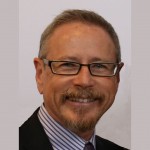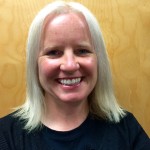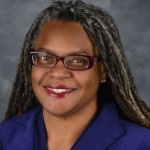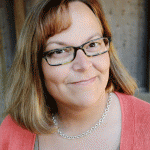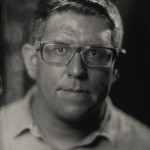Radical Archives – Question 2
November 2015
2In what ways is your organization, or your role, radical? In what ways is it not?
The Transgender Archives is the world’s largest collection of records of trans* activism and research. We hold 320 linear feet (98 meters) of materials from seventeen countries around the world, mostly concentrated on North America and the United Kingdom. The fact that it is exclusively devoted to trans* collections makes it a rarity; most collections of trans* materials are either within LGBTQ+ or sexuality collections, and occasionally women’s collections. While we do not usually think of ourselves as “radical,” nor did we originally conceive of our work as a radical project, it would not be a stretch to think of the Transgender Archives as a radical project in the ways that we have described in the first question. Trans* people have certainly been deeply marginalized in society, and the records of trans* activism and research have remained largely uncollected by formal archives.
Read this ResponseDocumenting Ferguson is a project of Washington University Libraries in St. Louis, created by a team of library staff and faculty. It is a collaborative, community-driven digital repository that preserves both local and national records created by observers of and participants in the events surrounding the police killing of teenager Michael Brown on August 9, 2014, in Ferguson, Missouri. Brown’s death inspired a multitude of responses. As a cultural organization within an institution of higher learning, it was important for the library to have a role in documenting related events as they unfolded. The repository was created as protests against the death of Michael Brown developed, with the intention of capturing the voices of local St. Louis residents in a discreet and anonymous way. The content includes both “citizen records” made by protesters, and some records created by journalists and others who may not have been directly involved as protesters.
Read this ResponseWhile the concept of the Digital Public Library of America (DPLA) as a national digital library was not unique—there are a number of national aggregators and service providers, like Europeana, who existed before us—the way we have implemented the DPLA is fairly unique and arguably radical. We started the DPLA with the requirement that all of the metadata contributed by our partner organizations would receive a Creative Commons Zero (CC0) license, and we emphasized the open Application Programming Interface (API) from the start. We did not want to be just another portal without the underpinnings of reuse. We were also fairly radical in our plan to build out content based on geography; our Service Hubs are either state or regionally based. We knew that there were a number of existing collaborative programs that we wanted to build on, and we envisioned that others could be built and existing programs could be made stronger; I think if you ask any of the Service Hubs in the DPLA network, they will agree that this has happened.
Read this ResponseCSPG is radical primarily because of the grassroots history and development of the organization, as well as its current programming. With its focus on social-justice posters and ephemera, the collection contains records that reference largely under-documented topics, issues, and communities. CSPG has two collecting criteria: 1) Works must be produced in multiples (such as offsets, silkscreens, stencils, woodcuts, etc.). 2) Works must be overtly political. CSPG accepts and welcomes posters representing any political ideology, although the vast majority of the works in the collection are from the Left. It documents diverse human-rights issues and social-justice movements. Approximately 40 percent of the collection is either produced internationally or about international solidarity.
Read this Response